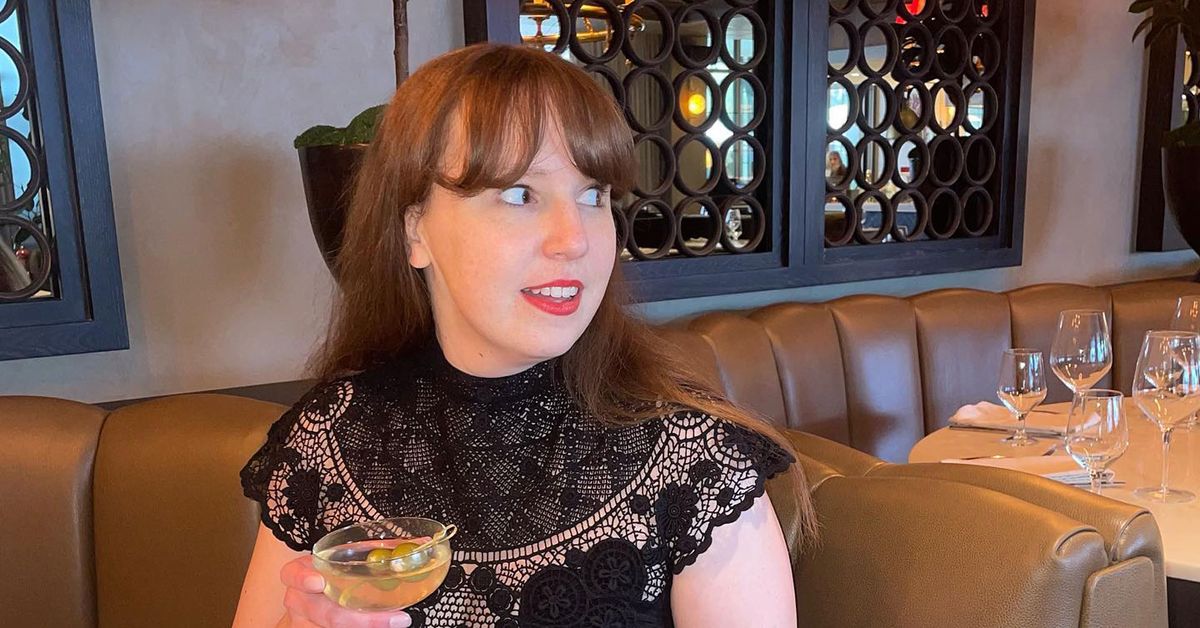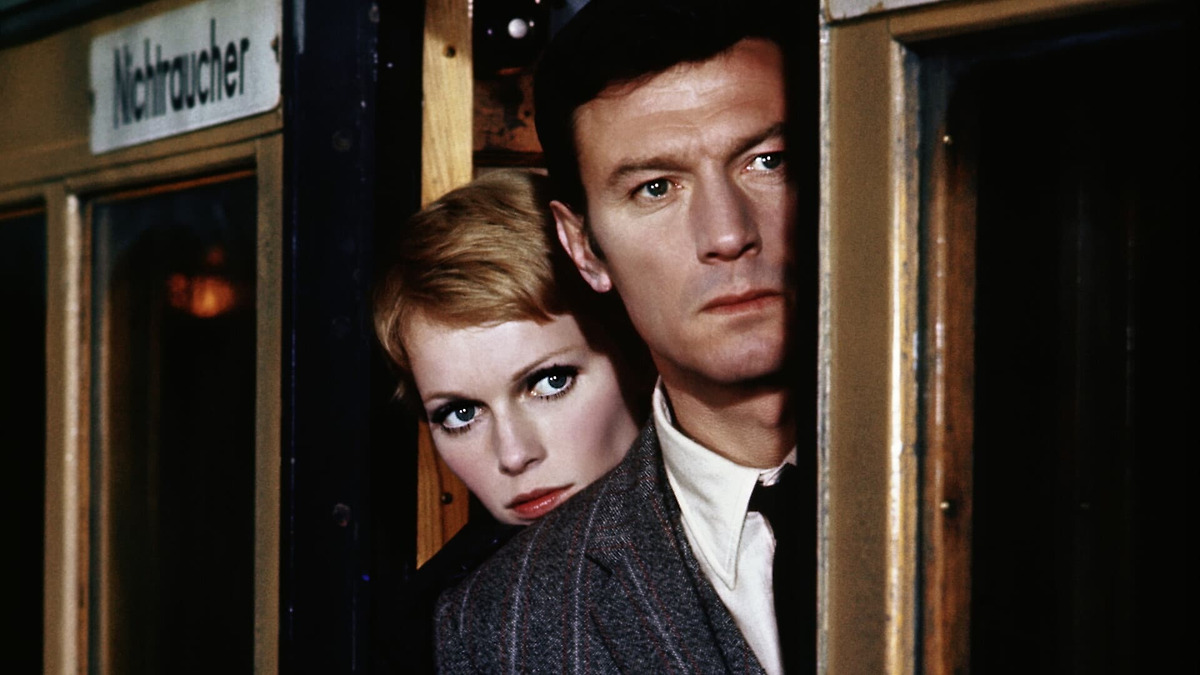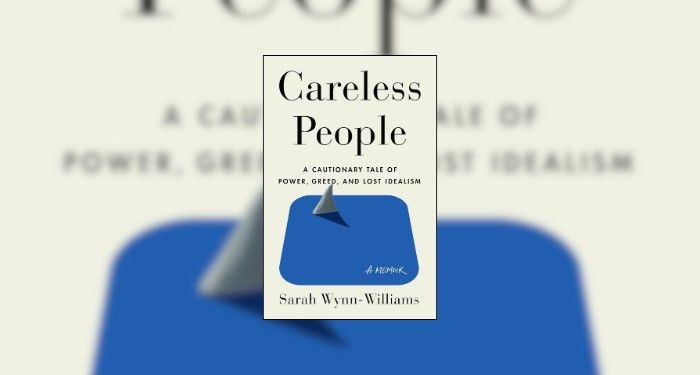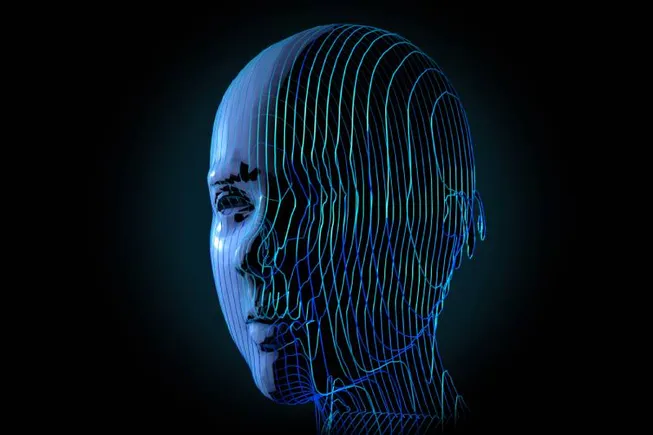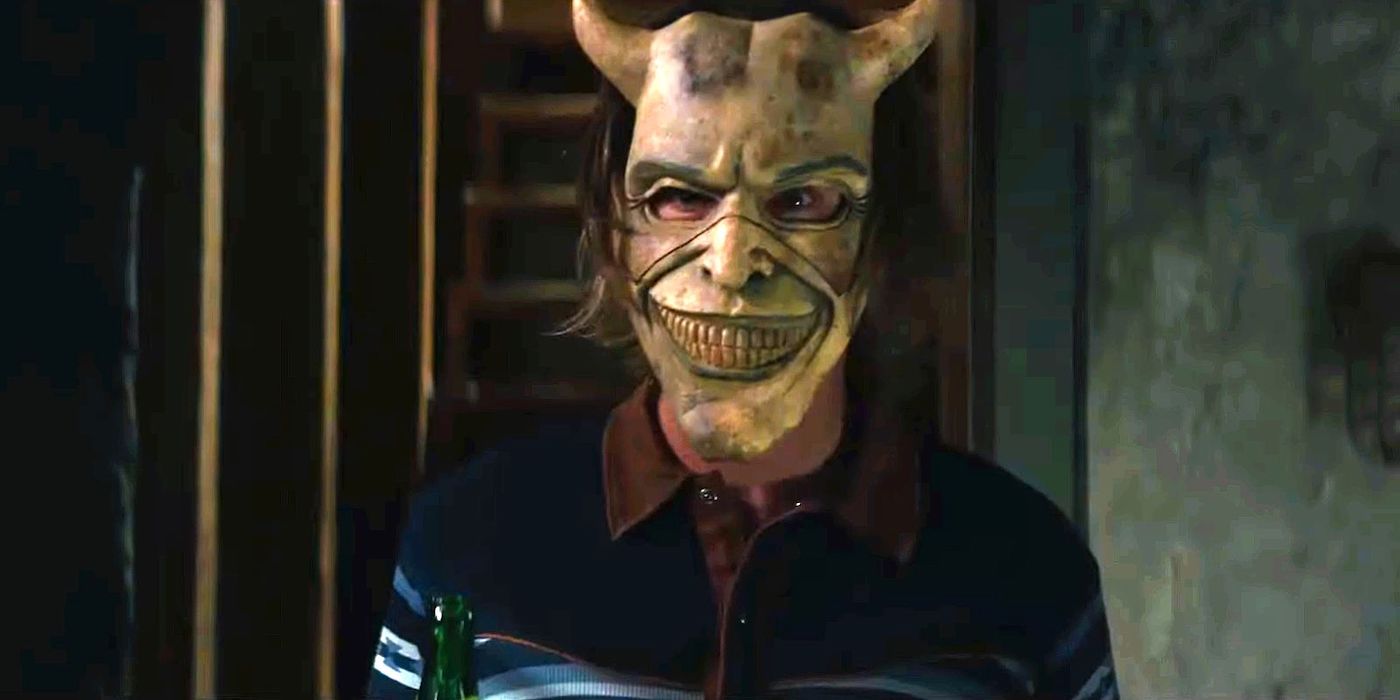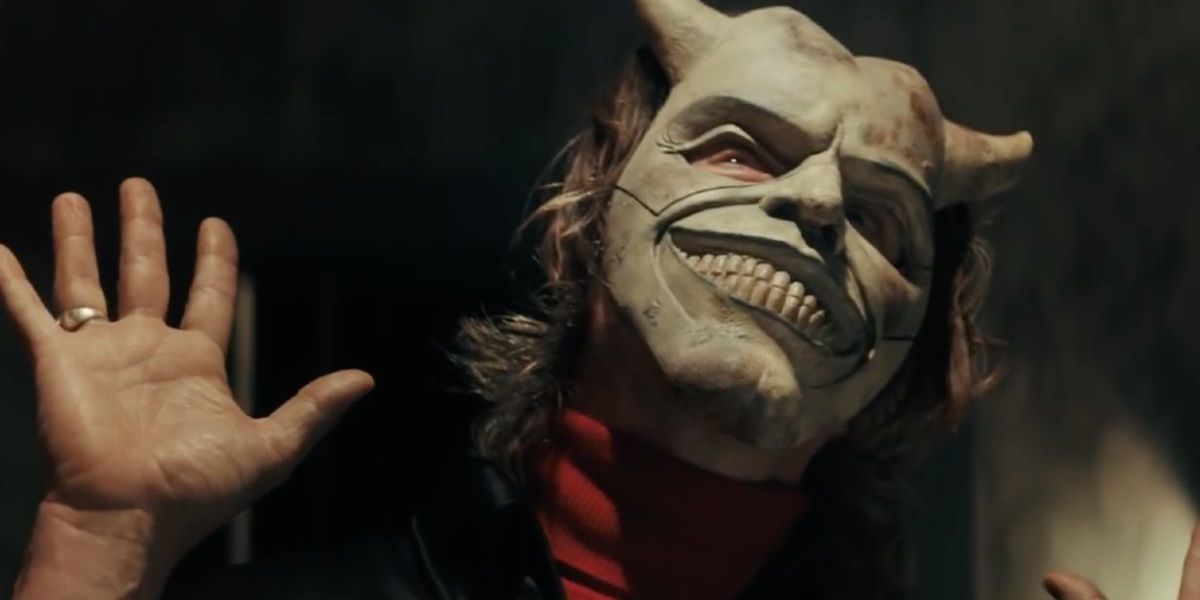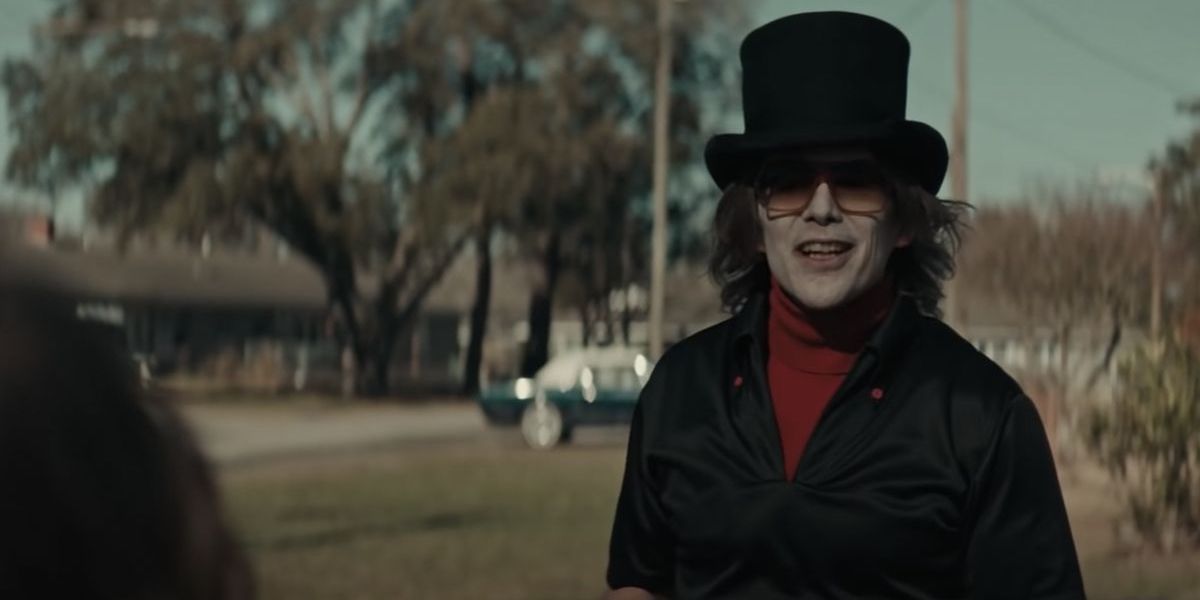Editor’s note: The following contains spoilers for The Black Phone.Most horror movies that deal with a serial killer usually spend some time building a tragic backstory that explains why a person can become a monster. More than often, a serial killer is someone who suffered some sort of abuse in their childhood, which leads them to create a twisted association between pleasure and other people’s pain. This approach helps humanize the serial killer and sometimes gives their victims tools to find some connection with their captor. However, in The Black Phone, Scott Derrickson does the exact opposite, depriving Ethan Hawke’s Grabber of a past and, in doing so, removing his humanity. The reason why the Grabber is so scary in The Black Phone is that we don’t know for sure what led him to perform some hideous acts. All we can see is a scary mask and an angry man who cannot be reasoned with.
When we think about the serial killer tradition in movies and TV shows, it’s easy to see how the road most walked is exploring what remains of human inside a monster’s mind. That’s precisely the concept of cult films such as The Cell, in which the goal of psychologist Catherine Deane (Jennifer Lopez) is to go inside a serial killer’s mind and find the child who still lives there, despite all the trauma he experienced in his infancy. In a similar fashion, series such as Dexter and You gather a massive audience due to their cautious exploration of deeply broken characters. And they do such good work there are millions of fans actually cheering for Dexter Morgan (Michael C. Hall) and Joe Goldberg (Penn Badgley), despite their irredeemable actions. In Mr. Brooks, Kevin Costner’s titular serial killer is even depicted as a family man with a good heart who is haunted by a dark shadow that forces him to kill. That takes away part of the blame and helps us relate to the dire situation the serial killer himself is into.
Films and TV shows also try to explore the humanity of serial killers by giving their actions a higher meaning. Jigsaw’s (Tobin Bell) crusade to force people to cherish life has already been repeated for two decades in the Saw franchise. As for David Fincher’s Se7en, the film explores the despicable actions of a man who still has some reason when he claims the world is drowning in apathy and self-destruction. Of course, we also have charming serial killers, like Mads Mikkelsen in Hannibal, which is arguably a love story besides a crime show.
When horror cinema does try to create inhuman killers, it often goes so far that the result is more entertainment than scary. We all love slasher films, but no one feels like the menaces of The Texas Chainsaw Massacre and Halloween could be hiding just down the street. And that’s precisely why we can rejoice in all the over-the-top deaths that paint the screen red with blood. Slashers are gruesome fun that allows us to leave the fear behind in the theater because the killer is an improbable monster.
In The Black Phone, however, we get introduced to the Grabber as a regular man, using common tools to kidnap children and trap them in his basement. There’s little exaggeration about the Grabber, a serial killer who can hide in the suburbs undetected, despite the multiple search efforts performed by the police and the people of the suburban town of West Denver. The Grabber’s house is mundane, and besides his basement, there’s nothing that gives away his evil nature. Finally, the Grabber even has a brother he lets crash on his couch, completing the picture of an absolutely regular human being. In short, the Grabber is someone we could cross on the streets without ever realizing there’s a wolf in sheep’s clothes.
The grounded life of the Grabber makes his killing habits scarier because no one could suspect he was hiding children in his basement. That’s a disturbing reminder we all could have already crossed paths with a serial killer without even realizing it. What’s worse is that, since we don’t know anything about Grabber’s past and motivations, we cannot comprehend his actions. There’s no evident reason for the Grabber to do what he does, so what’s stopping anyone from putting on a scary mask and torturing others? And what’s preventing us from becoming victims?
Sure, we can infer some things about the Grabber through his rituals. His fixation on “naughty” boys, his intentions of punishing evil deeds, and his someone apologetic conversations with Finney (Mason Thames) help paint a picture of someone who also suffered a violent family. There’s also the fact that the Grabber’s brother, Max (James Ransone), is a drug addict, which we could connect to the same abusive childhood. However, these are all breadcrumbs at most, and maybe only our personal projection looking for some meaning in The Black Phone, hopeful we will find a clue that will reassure us that the Grabber could not be hiding in the house in front of us. But maybe there is no explanation for the Grabber’s actions, and that’s what makes him scary.
Just as in both Creep movies and even No Country for Old Men, The Black Phone introduces a serial killer without a past, who’s scarier exactly because of that. When Finney is trapped in the Grabber’s basement, there’s no big revelation that could lead him to reason with the killer to ensure his freedom. There’s also no traumatic memory Finney could use to distract the Grabber while he escapes. Instead, there’s only a force of evil, methodically trapping, torturing, and killing children while his neighbors go on with their lives, unaware of the horrors happening just a few feet away.
By taking the focus away from the Grabber’s past, The Black Phone allows the serial killer to remain a sadistic and dangerous figure throughout the movie. And by turning the Grabber into a killer without apparent trauma, The Black Phone makes sure Finney’s fate cannot be escaped by appealing to any kind of humanity. The idea that Grabber could hide so well is scary, but the notion there’s no real motivation for his crimes is more terrifying. After all, if killers such as The Black Phone’s Grabber exist – and we know they do – how could we know they are not living close to us?

























